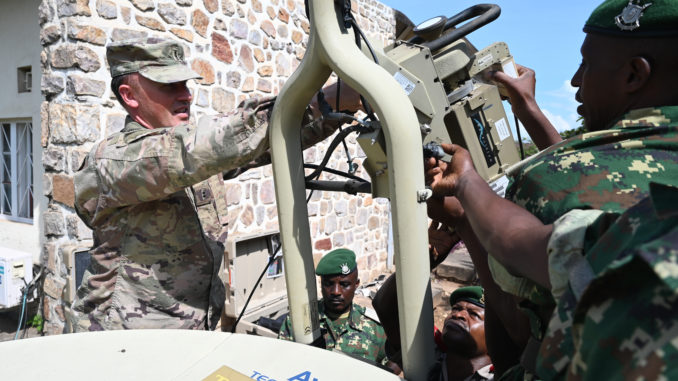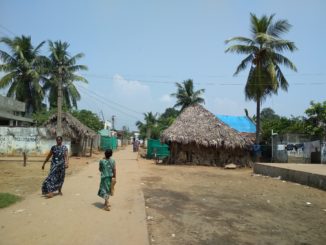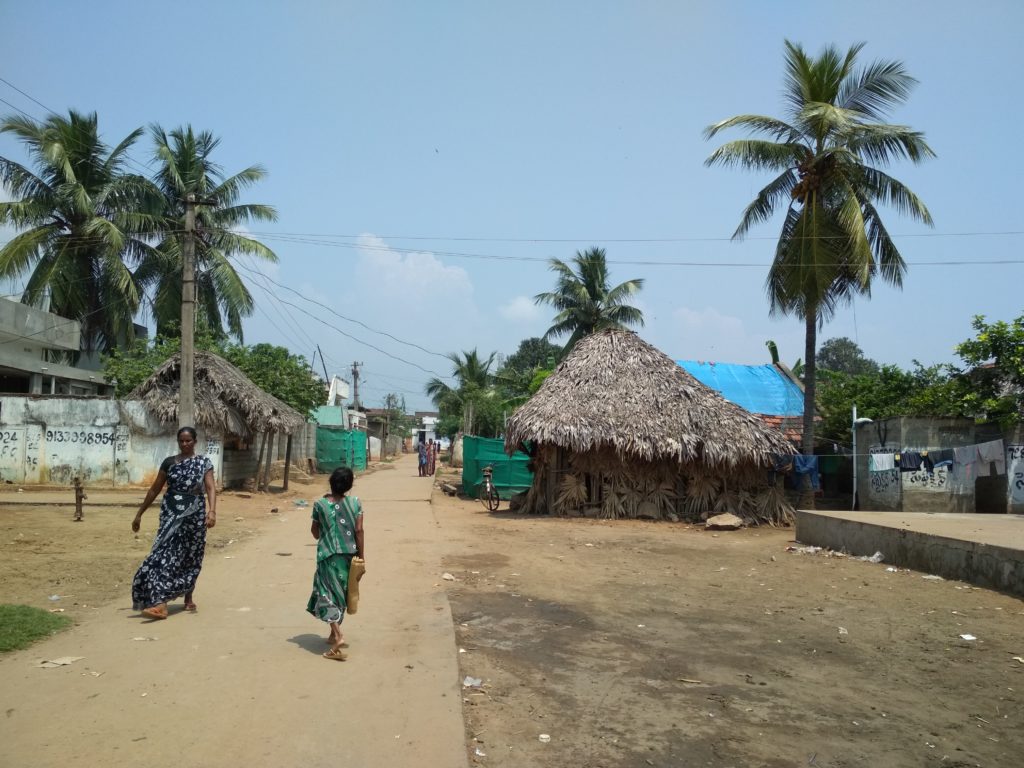
Editor’s Note: This was excerpted from the Black Alliance for Peace’s AFRICOM Watch Bulletin.
The imperialist powers are bent on exploiting the labor and looting the mineral wealth of as many poor, underdeveloped countries as they possibly can.
Britain, France, Israel, Germany and the United States conduct joint military action against Africans—acts such as the invasion of Grenada, a country of 110,000 African people, and the invasion and destruction of Libya. The imperialists are further intensifying their use of military “proxies” within Africa against other parts of Africa, not to defend the interests of Africa, but to further the interests of capitalist-imperialism.
No small or isolated group of Africans can defeat imperialism, no matter how good their intentions. Only the working, struggling African masses can do it. But to do so, we must be organized and bound together by a common goal and guided by correct ideas. In other words, the masses must be correctly organized!
U.S. Out of Africa: Voices from the Struggle
Dr. Gerald Horne is the author of over 30 books, among them most recently would be the Bittersweet Science: Racism, Racketeering and the Political Economy of Boxing and The Dawning of the Apocalypse: The Roots of Slavery, White Supremacy, Settler Colonialism and Capitalism, in the Long Sixteenth Century. He currently holds the John J. and Rebecca Moors Chair of History and African American Studies at the University of Houston. He is considered by many to be the gold standard for radical historians and the go-to scholar for alternatives to neoliberal political and historical narratives. We spoke with him about a wide variety of issues around our work concerning Africa.
AFRICOM Watch Bulletin: Counterterrorism was the espoused pretext for the development and installation of US AFRICOM onto the African continent which now exist in 53 or the 54 countries. Can you talk about how terrorism is used today compared to how Communism once was, and has it indeed surpassed communism as the go-to pretext for US imperial interventionism projects?
Gerald Horne: A central problem with “terrorism” as a lever for imperial intervention in Africa is the dearth of self-criticism. That is, during the Cold War, Washington collaborated with religious zealots and fanatics, not least in Afghanistan, not least with the rulers of certain Gulf monarchies, in order to weaken various socialist projects. Now like a perpetual motion machine, imperialism has now decided—at least on the surface—to target this phenomenon. I say “on the surface” because there is still collaboration with, e.g. Saudi Arabia and the vulturous regimes who signed the so-called “Abraham Accords” in September 2020 in order to weaken Palestinian resistance. Of course, today this phenomenon is now wreaking havoc in northern Mozambique.
AWB: You have done a great deal of comprehensive work on liberation struggles on the African continent. Unfortunately, your analysis is not the center of US curriculums. What steps can be taken the change that reality?
GH: I think that work should be done in league with the Zinn Project, which seeks to inject progressivism in educational curricula. This would also include the two major unions–the National Education Association and the American Federation of Teachers. This would also include fierce fightback against current legislative efforts to circumscribe “Critical Race Theory”, which detractors could hardly describe or define, if pressed.
AWB: Israel has been making strides in establishing partnerships with several African countries despite its continued maintenance of an apartheid state and oppression of the indigenous Palestinian population. To what degree do you attribute this pattern of African countries turning a blind eye to Israeli human rights violations so short of a time after the anti-apartheid struggle in South Africa?
GH: With the erosion of the socialist bloc, post 1991, African nations–and indeed the entire global left–has faced difficulty in standing up to U.S. imperialism and its proxy: Israel. On the other hand, this is nothing new, for even pre-1991 nations e.g. Morocco stood alongside imperialism. (Parenthetically, in my 16th century book I pointed out that a gigantic step forward for the acceleration of the African Slave Trade took place in 1591 when Rabat collaborated with London in destabilizing the Songhay Empire; today, Rabat continues to suppress the liberation of “Western Sahara”.) The struggle continues…
AWB: What will it take for Black evangelicals, be they in Africa or the Diaspora, to rethink their unconditional support for Israel?
GH: In order to force the “Black Evangelicals” to move, we will have to heighten our own struggle and then they will find the ground beneath their feet moving. There are already signs of rifts between BE and Israel and I do not envision this trend dissipating any time soon.
AWB: Paul Robeson, Malcolm X, Kwame Ture are among the Pan Africanists who tied African American progress to the liberation of Africa. How can we grow the number of Black folks in America to this line of thinking?
GH: We must continue what we have been doing–with more. We must organize more picket lines and study groups. We must make more media appearances. We must launch more documentary projects. We must establish a presence at the African Union in Addis Ababa and CARICOM too. We must picket the OAS headquarters in Washington, DC, especially re: the crisis in Colombia. We must **organize**.
AWB: Thank you for your time and revolutionary analysis!








